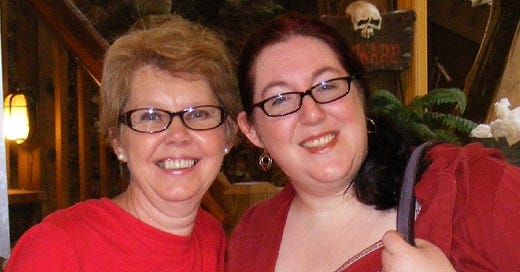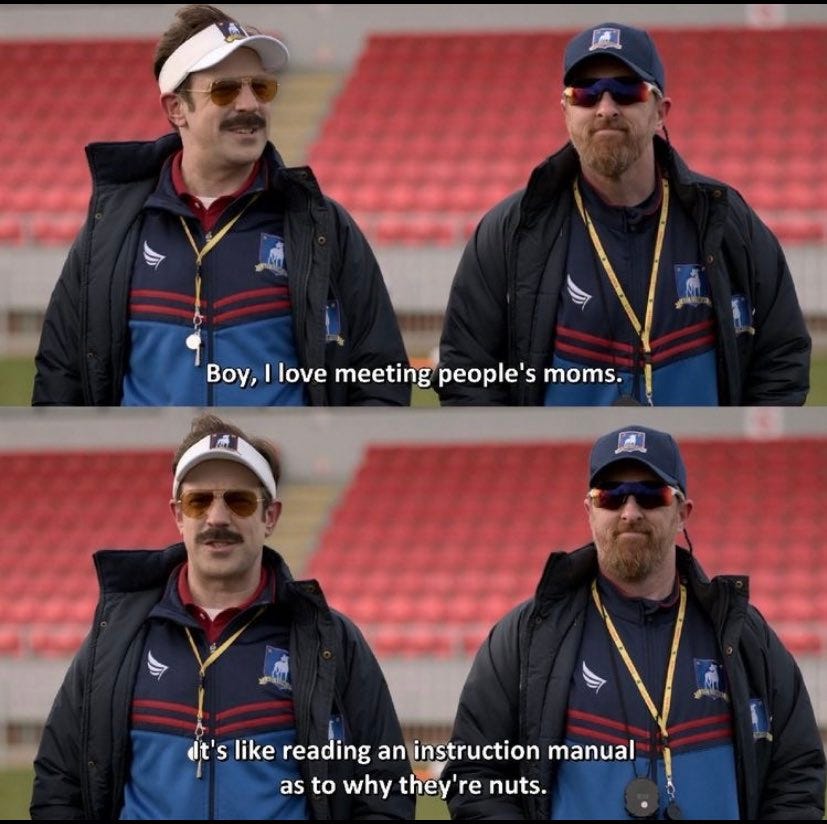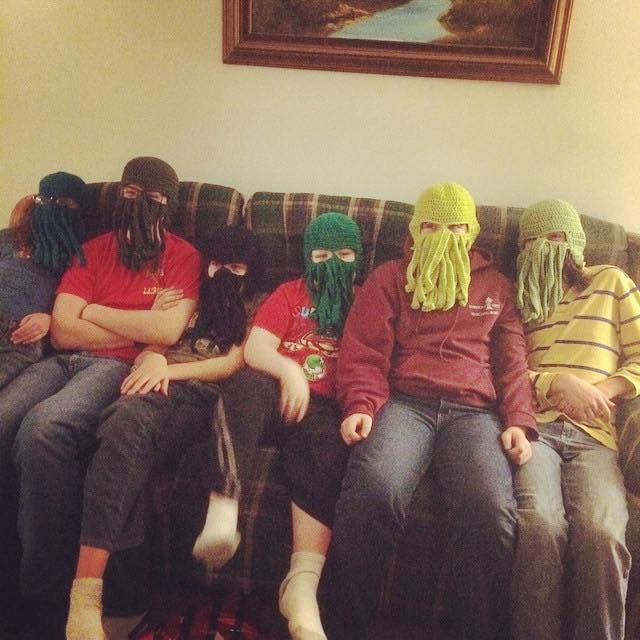Ted Lasso has a lot to say about parenting. I explore that in one of the four sections of my new book. The following are some more personal stories I share in chapters talking about the moms, Deborah and Dottie, as well as the relationship between Ted and Henry. No matter your relationship with your mom specifically or parenting in general, I hope that you can find something to be happy about today.
Often, there can be an over-reliance on memories of the past as ways to connect, and there is some value in that. Only four other people in my life could remember staring at the vast Vermont sky one summer night after we had played in an arcade and eaten mountain pies at our campsite. I have talked about it plenty of times because it was a foundational moment for me, but the only people who experienced it with me were my sisters and my parents. I have lots of positive memories with my parents as a child.
But as an adult, I have far fewer. As things in my life changed, reshaping some of the ways my values were expressed, conversations with my parents grew further apart, with neither of us making an effort to close the gap. My mother passed away in 2014, and unfortunately, I feel like there was a lot left unsaid between us, and at least some of that was because she, like Dottie and Deborah, didn’t seem to want to talk about complicated subjects.
I started my first blog back when blogs were still a thing. I wrote it primarily as a way to keep my family and a few friends updated on what was going on with me and my kids. But over time, I started writing about more personal things. I wrote about my changing thoughts on politics and religion. I wrote about how some events in my past influenced my present, both the good ones, like the camping trip in Vermont, but also some hurts that I had never been able to articulate as a child or adolescent.
One day, I was talking to my mom on the phone and probably mentioned something about my writing, and she confessed that she had stopped reading. She told me that she felt like I was too focused on the past, and all I did was dwell on the bad things that had happened. I assured her that I didn’t think I had a bad childhood or that I thought that she was a bad mother, as neither was true, but that instead, I was trying to connect strong reactions as an adult to issues in my youth. Examining moments I had experienced as a child that made me feel certain kinds of rejection more significantly than others as an adult. Instead, in seeking that out, I experienced a different type of rejection from my mother. As a result, I essentially closed off from her, fearing that talking about memories from the past would only be more hurtful, not unlike Rebecca who felt like truth was more apt to result in punishment than closeness.
I’m a mom to adult children myself, so I understand how vulnerable it feels to talk about mistakes you made as a parent. It feels like an attack, even if it’s not really about me. All parents are making it up as we go along, so of course, we’re going to do things that hurt our kids. We often have our own styles that may or may not mesh with our children, and as such, some methods might have caused more harm than good. It doesn’t mean that we were bad parents or that our kids are ungrateful. It simply means that we had finite resources, and what we had wasn’t enough for them.
As a result of these deficits, it is unwise to build solely on our shared past. To transition to parenting adult children, we must look for new ways to build connections. Older parents still have things to teach their kids, but there are things that adult children can also teach their parents. When we establish a connection with them as adults, those exchanges can be easier to stomach from all sides.
A decade ago, I went through a traumatic year. A sudden divorce. The illness and subsequent death of one of my parents. A pregnancy and stillbirth. It was a lot, and it had an impact on my relationship with my kids. There was a season when we were distant while they lived primarily with their dad. There was a moment when I thought that I should just leave and start over somewhere else — that somehow that would be better for my children.
But instead, I stayed. I got into therapy. I apologized to my kids about how my actions affected them. I let them express their emotions without getting (too) defensive with them. It was hard, but we rebuilt relationships that are stronger than they were. I’m not saying that things are perfect, but I know that my kids love me and I know that they are certain that I love them.
We can never escape being someone’s child or parent. No matter how old we are, that was the first way we interacted, and it will always play some role in how we interact going forward. A good parent will always have their child’s best interests at heart, but that doesn’t mean that they always succeed in that. As such, a good parent will also need to be willing to admit mistakes and make adjustments as they go. Even so, they will still fall short.
As adult children, we need to understand that our parents were working with whatever tools they had available and be willing to give some grace to the areas where they misstepped. We also need to be willing to share our disappointments before they have an opportunity to fester and erode the relationship that we might have with them.
There will have to be an element of give and take between parents and their adult children. Finding areas of common interest not just from their past but also in the present will help aid in that. Understanding generational differences and stressors will be necessary. But most of all, a willingness to speak and listen with love will help you have a fulfilling relationship. Even if that love is preceded by a “fuck you.” Hopefully, we can find our way to far more “thank you’s” underneath. And best of all, a few “I love you’s.”
You can pre-order my book right now! A paperback edition will be available on May 24 when the book releases!







Great writing. Thoughtful and honest. Can’t wait!